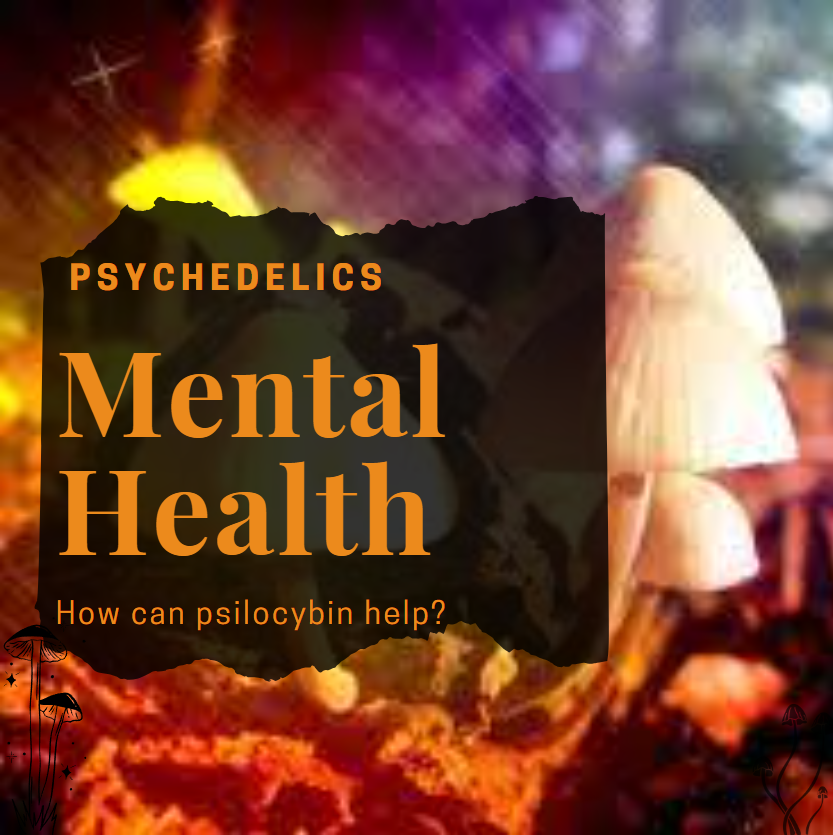
Psilocybin exhibits significant promise in addressing diverse health conditions, owing to its tangible impacts on brain function and subjective encounters. Here are some health issues that psilocybin therapy has shown potential in treating.
Eating Disorders. Depression. Anxiety. Obsessive-Compulsive Disorder (OCD). Post-Traumatic Stress Disorder (PTSD). Substance Use Disorders (SUD). Cluster Headaches and Migraines and more.
Depression
Amid the pressing need for more effective treatments for depression, psilocybin emerges as a promising solution. Unlike conventional medications that often take weeks to show any effect, psilocybin offers rapid relief, making it particularly advantageous for individuals with treatment-resistant depression. By binding to 5-HT2A receptors in the brain, psilocybin facilitates altered neural connections, effectively rewiring the brain and reducing activity in the default mode network (DMN). This can lead to an enhanced perception of surroundings and increased emotional well-being. Moreover, psilocybin promotes neuroplasticity in areas involved in mood regulation, offering long-lasting benefits. However, it’s crucial to consider potential risks, especially for individuals with coexisting psychiatric disorders like bipolar disorder.
Anxiety
Anxiety, a prevalent mental health condition, often remains inadequately addressed by current treatments such as antidepressants. Psilocybin, by interacting with 5-HT2A receptors involved in mood regulation, exerts anxiolytic effects and influences neural activity patterns. Studies have also highlighted its efficacy in alleviating anxiety and depression in end-of-life patients, improving their quality of life. Microdosing psilocybin presents a viable option for anxiety relief, offering benefits without inducing hallucinogenic experiences or exacerbating anxiety.
Obsessive-Compulsive Disorder (OCD)
OCD, marked by intrusive thoughts and compulsive behaviors, can disrupt daily functioning. Psilocybin reduces obsessive thinking by decreasing brain activity in the medial prefrontal cortex. This alteration in serotonin-binding activity alleviates OCD symptoms. Psilocybin also resets functional connectivity in the brain, offering relief and improved well-being. Its fast-acting nature makes it a promising alternative to existing treatments.
Post-Traumatic Stress Disorder (PTSD)
PTSD stems from traumatic experiences, causing distressing thoughts and emotions. Psilocybin stimulates nerve cell regrowth in emotion and memory centers like the hippocampus. It fosters positive memories, counteracting trauma.
